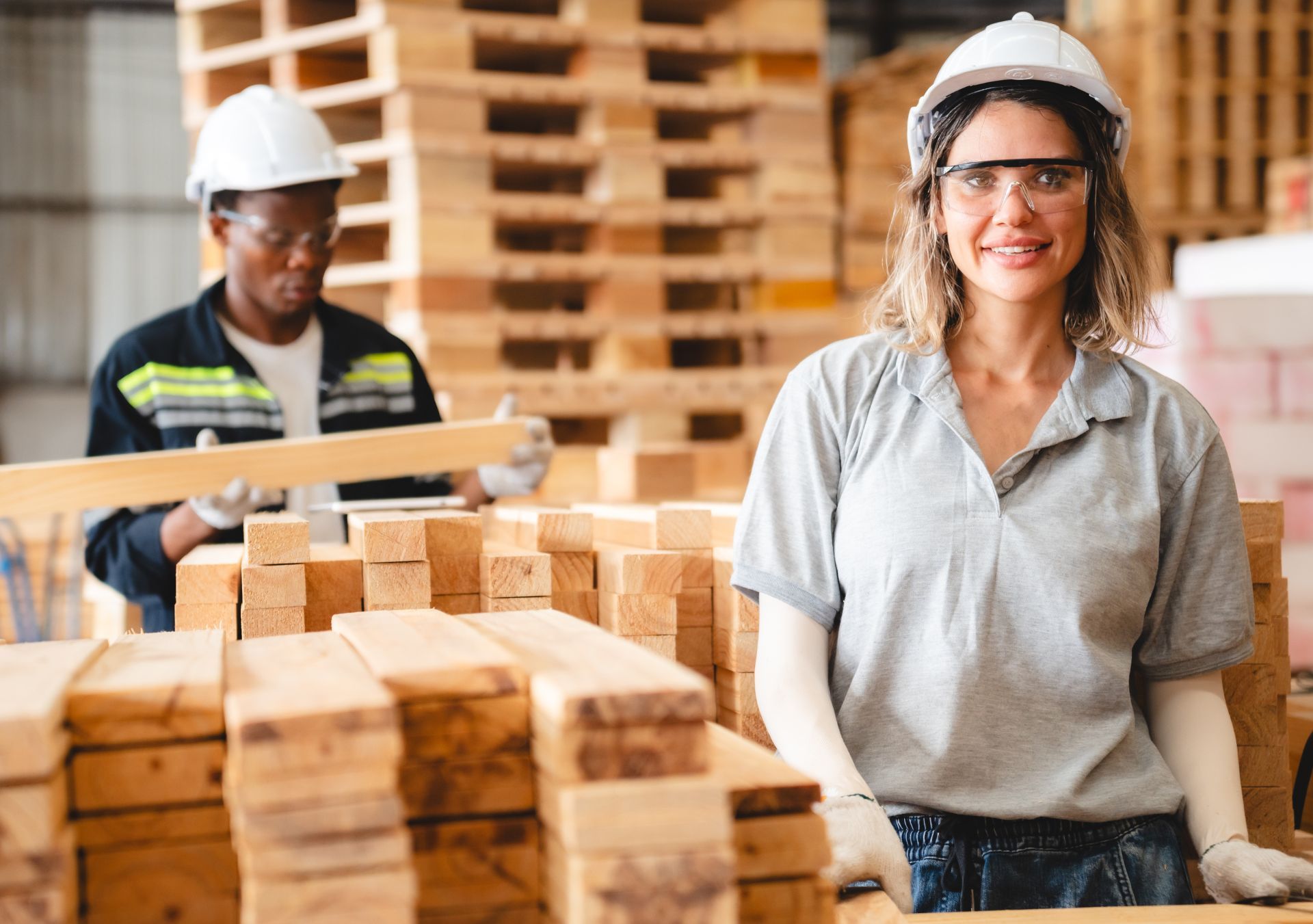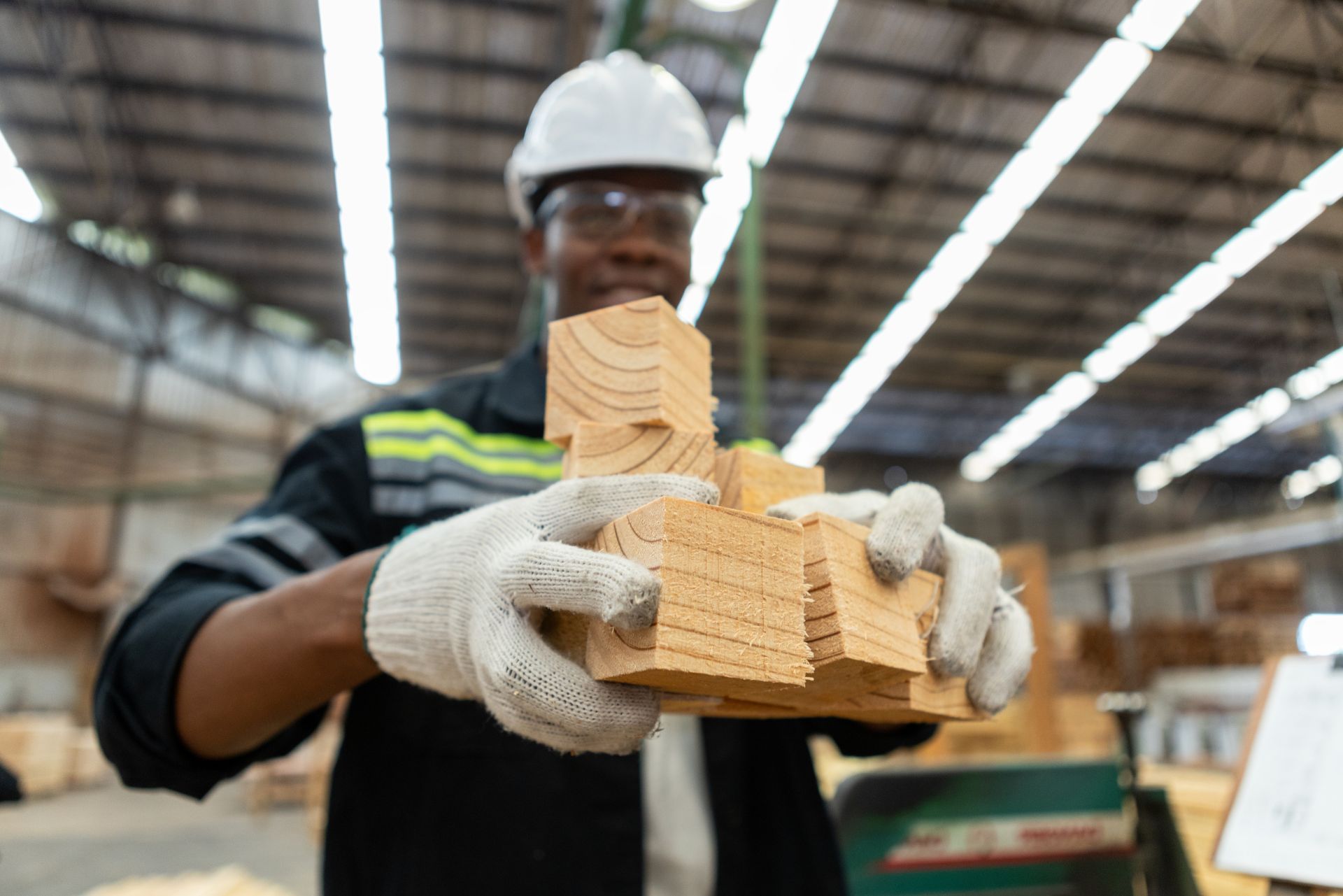Arizona Wood Manufacturer Insurance
See How We're Different:
or Call Us:(480) 526-3222

Most Common Business Policies
Index
Contact Us
Operating a
wood manufacturing business in Arizona comes with its unique set of challenges and risks. From the intricacies of the production process to the unpredictability of the market, ensuring that your business is adequately protected is paramount. This is where Arizona
wood manufacturer insurance plays a crucial role. This article delves into the various aspects of insurance tailored for wood manufacturers, outlining what you need to know to safeguard your enterprise effectively.
Understanding Wood Manufacturer Insurance
Wood manufacturer insurance is a specialized form of coverage designed to protect businesses involved in the production and processing of wood products. This type of insurance encompasses various policies that address the specific risks associated with the wood manufacturing industry. With the increasing demand for sustainable and innovative wood products, manufacturers must navigate a complex landscape of regulatory requirements and market pressures, making comprehensive insurance coverage more critical than ever.
Types of Coverage
There are several types of coverage that wood manufacturers should consider. Each type serves a distinct purpose and can be tailored to fit the unique needs of a business. Understanding these options can help manufacturers mitigate risks effectively and ensure long-term viability.
- General Liability Insurance: This coverage protects against claims of bodily injury, property damage, and personal injury that may occur on your premises or as a result of your operations. It is particularly important in a manufacturing setting where heavy machinery and raw materials can pose risks to both employees and visitors.
- Property Insurance: This policy covers the physical assets of your business, including buildings, machinery, and inventory, against risks such as fire, theft, and natural disasters. Given the high value of specialized equipment used in wood processing, having robust property insurance can prevent catastrophic financial setbacks.
- Workers' Compensation Insurance: Essential for any manufacturing business, this insurance provides benefits to employees who suffer work-related injuries or illnesses. In an industry where workers may be exposed to hazardous conditions, this coverage is vital for maintaining workforce morale and ensuring compliance with labor laws.
Understanding these types of coverage is crucial for making informed decisions about your insurance needs. Each policy can be customized to address the specific risks associated with your operations. Moreover, consulting with an insurance expert who specializes in the wood manufacturing sector can help identify additional coverage options, such as equipment breakdown insurance or product liability insurance, which may be beneficial depending on your business model.
Why Insurance is Essential for Wood Manufacturers
The wood manufacturing industry is fraught with risks that can lead to significant financial losses. From equipment failures to workplace accidents, the potential for costly incidents is ever-present. Additionally, fluctuations in raw material prices and changes in environmental regulations can further complicate the operational landscape, making it imperative for manufacturers to have a solid risk management strategy in place.
Insurance serves as a safety net, ensuring that businesses can recover from unforeseen events without devastating financial repercussions. Additionally, having the right insurance coverage can enhance a company's credibility, making it more attractive to clients and partners who value risk management. In an industry where trust and reliability are paramount, demonstrating a commitment to safeguarding both assets and employees can set a business apart from its competitors. Furthermore, proactive risk management through insurance can lead to lower premiums over time, as insurers recognize the efforts made to minimize potential claims.

Key Risks Faced by Wood Manufacturers
Understanding the risks inherent in wood manufacturing is crucial for selecting the appropriate insurance coverage. Here are some of the most common risks faced by businesses in this sector:
Fire Hazards
Wood is a combustible material, and the manufacturing process often involves equipment that generates heat or sparks. This creates a heightened risk of fire, which can lead to significant property damage and loss of life.
Insurance policies that specifically address fire hazards can help mitigate these risks. Fire safety measures, such as installing sprinkler systems and conducting regular fire drills, can also play a vital role in reducing the likelihood of fire-related incidents. Additionally, implementing a robust fire prevention plan, including routine inspections and employee training on emergency procedures, can further enhance safety. The use of fire-retardant materials in production areas and proper storage of flammable substances can also significantly decrease the chances of a catastrophic fire.
Equipment Failure
Wood manufacturing relies heavily on machinery and equipment, which can fail due to wear and tear or manufacturing defects. Such failures can halt production, leading to financial losses.
Property insurance can cover the costs associated with repairing or replacing damaged equipment, ensuring that operations can resume as quickly as possible. Regular maintenance schedules and predictive maintenance technologies can help identify potential failures before they occur, minimizing downtime. Furthermore, investing in high-quality machinery and training staff to operate equipment safely and effectively can reduce the risk of accidents and prolong the lifespan of critical tools. This proactive approach not only safeguards production but also enhances overall operational efficiency.
Choosing the Right Insurance Provider
Selecting the right insurance provider is a critical step in securing adequate coverage for your wood manufacturing business. Here are some factors to consider:
Experience in the Industry
It is essential to choose an insurance provider with experience in the wood manufacturing sector. An experienced insurer will have a better understanding of the unique risks and challenges faced by businesses in this industry.
Look for providers who specialize in manufacturing insurance and have a proven track record of serving similar businesses. This expertise can lead to more tailored coverage options and better claims support. Additionally, an insurer with a deep understanding of the wood industry can offer insights into risk management practices that can help mitigate potential losses. They may also be aware of industry-specific regulations and compliance requirements, ensuring that your business remains protected from legal pitfalls.
Customer Service and Claims Process
Insurance is only as good as the support you receive when you need it. Evaluate the customer service reputation of potential providers. Look for reviews and testimonials from other wood manufacturers to gauge their experiences.
A smooth and efficient claims process is also crucial. In the event of an incident, you want to ensure that your provider can respond quickly and effectively to minimize disruptions to your business. Consider reaching out to potential insurers directly to ask about their claims handling procedures. A provider that prioritizes transparency and communication can make a significant difference during stressful situations. Furthermore, inquire about the availability of dedicated claims representatives who understand your business's specific needs and can advocate on your behalf, ensuring that you receive the support necessary to navigate the claims process seamlessly.
Cost of Wood Manufacturer Insurance
The cost of insurance for wood manufacturers can vary significantly based on several factors. Understanding these factors can help businesses budget effectively and make informed decisions.
Factors Influencing Insurance Premiums
Several elements can influence the cost of insurance premiums for wood manufacturers:
- Business Size: Larger businesses typically face higher premiums due to their increased exposure to risk.
- Location: The geographical location of your business can affect premiums, as some areas may be more prone to natural disasters or crime.
- Claims History: A history of frequent claims can lead to higher premiums, as insurers may view your business as a higher risk.
By understanding these factors, businesses can take proactive steps to manage their risk and potentially lower their insurance costs. Additionally, the type of wood products manufactured can also play a critical role in determining premiums. For example, manufacturers dealing with hazardous materials or specialized machinery may face higher rates due to the increased risk associated with these operations. Furthermore, the overall economic climate can influence insurance costs, as fluctuations in the market can lead to changes in underwriting practices and premium calculations.
Ways to Reduce Insurance Costs
There are several strategies that wood manufacturers can employ to reduce their insurance premiums:
- Implement Safety Programs: Establishing comprehensive safety protocols can reduce the likelihood of accidents, which may lead to lower premiums.
- Bundle Policies: Many insurance providers offer discounts for bundling multiple policies, such as general liability and property insurance.
- Regular Risk Assessments: Conducting regular assessments of your operations can help identify potential risks and allow you to address them proactively.
In addition to these strategies, investing in employee training can significantly enhance workplace safety and reduce the risk of incidents that could lead to claims. Training programs that focus on equipment handling, emergency response, and hazard recognition can empower employees to act safely and responsibly. Another effective approach is to engage with an insurance broker who specializes in the wood manufacturing industry; they can provide tailored advice and help negotiate better terms with insurers. By actively managing risks and fostering a culture of safety, wood manufacturers can not only protect their workforce but also create a more favorable environment for securing lower insurance costs.

Legal Considerations for Wood Manufacturers
In addition to understanding insurance, wood manufacturers must also be aware of the legal landscape that governs their operations. Compliance with regulations is crucial for minimizing legal risks.
Regulatory Compliance
Wood manufacturers in Arizona must adhere to various local, state, and federal regulations. These may include environmental regulations, safety standards, and labor laws.
Staying informed about relevant regulations and ensuring compliance can help prevent legal issues that may arise from non-compliance. Regular training and updates for employees on these regulations are essential for maintaining compliance. Furthermore, manufacturers should consider implementing an internal compliance program that includes regular audits and assessments to identify potential areas of risk. This proactive approach not only helps in adhering to legal requirements but also fosters a culture of safety and accountability within the organization.
Contractual Obligations
Wood manufacturers often enter into contracts with suppliers, clients, and other stakeholders. Understanding the contractual obligations and liabilities outlined in these agreements is vital.
Insurance can help cover liabilities arising from contractual obligations, but it is essential to read and understand the terms of any contract before signing. Consulting with legal professionals can provide additional insights and protections. Additionally, manufacturers should be aware of the implications of force majeure clauses, which can protect them from unforeseen events that may hinder their ability to fulfill contractual obligations. These clauses can be particularly important in the wood industry, where supply chain disruptions, such as natural disasters or economic downturns, can have significant impacts on operations.
Conclusion
In the dynamic world of wood manufacturing, having the right insurance coverage is not just a precaution; it is a necessity. By understanding the types of coverage available, the risks faced by the industry, and how to choose the right provider, wood manufacturers in Arizona can better protect their businesses.
Investing time and resources into securing appropriate insurance can lead to peace of mind and allow business owners to focus on growth and innovation. As the industry continues to evolve, staying informed about insurance options and legal considerations will be essential for long-term success.
Ultimately, the right insurance strategy will not only protect your business but also contribute to its resilience in the face of challenges. As the wood manufacturing landscape changes, being prepared with the right coverage can make all the difference.
